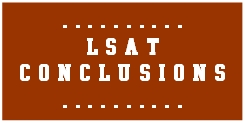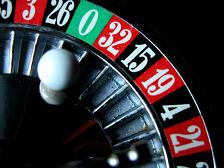Finding Conclusions on the LSAT Test | Advanced Techniques
 This is the second in a series of lesson articles about conclusions on the LSAT test. The series includes the following articles:
This is the second in a series of lesson articles about conclusions on the LSAT test. The series includes the following articles:
- LSAT Conclusions: an Introduction
- Finding Conclusions on the LSAT Test: Advanced Techniques
- Conclusion Questions on the LSAT Test
- LSAT Secrets for Conclusions
Finding Conclusions on the LSAT Test: Advanced Techniques
Sometimes an author uses an analogy to support her main idea. Often the LSAT tries to trick you by giving you an answer choice related to an analogy. The analogy is never central to the argument, and is never the main conclusion. For example:

 Remember, there is no penalty for getting an answer wrong on the LSAT test. Many standardized tests will actually take a fraction of a point away from your raw score if you get an answer wrong. That is to discourage you from guessing during the test. Not so with the LSAT. Since there is no penalty for a wrong answer, you have no excuse for leaving any questions unmarked in your answer form. For every answer you fail to at least make a guess at, you are losing at least 1/5 of a point (since you have five answer choices, a random guess will be right one out of five guesses on average). If you can eliminate some answers, that ratio increases. If you can eliminate three answers, each guess you make is worth one-half a raw point. Not bad for making a guess.
Remember, there is no penalty for getting an answer wrong on the LSAT test. Many standardized tests will actually take a fraction of a point away from your raw score if you get an answer wrong. That is to discourage you from guessing during the test. Not so with the LSAT. Since there is no penalty for a wrong answer, you have no excuse for leaving any questions unmarked in your answer form. For every answer you fail to at least make a guess at, you are losing at least 1/5 of a point (since you have five answer choices, a random guess will be right one out of five guesses on average). If you can eliminate some answers, that ratio increases. If you can eliminate three answers, each guess you make is worth one-half a raw point. Not bad for making a guess.